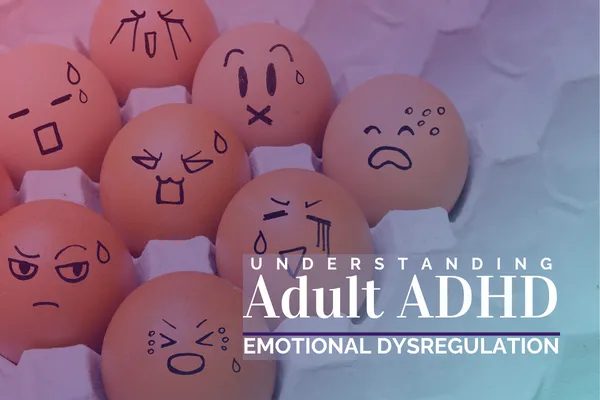


where curiosity & christianity
collide
where curiosity & christianity
collide



featured episode
episode 00. - trailer
Welcome to the faithxwtf podcast, where curiosity & christianity collide. Hi! I'm Erin, your host & guide as we all work to find answers to questions we didn't know we could ask.
episode 00. - trailer
Welcome to the faithxwtf podcast, where curiosity & christianity collide. Hi! I'm Erin, your host & guide as we all work to find answers to questions we didn't know we could ask.
join us at the intersection!
we'll send amazingness to your inbox, and nothing more, we promise!
join the email squad and
get weekly emails with...
New Episode Drops
Show Notes
Behind The Scenes Shenanigans
...and more, obviously!
show notes

Understanding Adult ADHD | Emotional Dysregulation
Adult ADHD & Emotional Dysregulation
Hey friends! Erin here from the intersection of faith and ADHD. My mission and goal is to provide faith-based resources to Christian adults with ADHD so they can release the shame & step into their God-given authenticity, identity, and purpose.
If you want to download my free 5-day ADHDevotional (a devotional coloring workbook), click here!
Now, today, we’re going to talk about adult ADHD and emotional dysregulation. It’s a bit embarrassing to not fully know how to manage your emotions as an adult with ADHD, right? It feels like we’ve been learning this skill our entire lives! But no matter how much you try, the emotional dysregulation keeps happening. You’ve tried your best over and over again to follow the Bible and “keep captive every thought”, but the thoughts keep breaking out of jail.
Whew… I’m right there with you. I’ve always been the seemingly hyper-emotional kid. I remember my emotions always being on the surface. I remember being made fun of constantly for crying too much, being too angry, or even laughing too loud. I was too happy sometimes?
But the thing is this: I wasn’t always in control of those reactions. And because of the magic of ADHD hyperfocus, I wasn’t always able to simply “get over it”. That’s also part of emotional dysregulation.
ADHD Emotional Dysregulation Defintion
Before we keep going, let’s actually define emotional dysregulation when it comes to adult ADHD. According to Cleveland Clinic, emotional dysregulation is defined as a mental health condition that involves trouble controlling your emotions & how you act on those feelings.
to those around you, your emotions and reactions will seem out of proportion compared to what you're reacting to.
Look again at that definition: It doesn’t say that your emotions, themselves, are bad or invalid. God created us, our brains, and our emotions. It simply states that you have trouble expressing them in a healthy way, or that sometimes the intensity of the emotion doesn’t match the perceived intensity of the situation.
This is why this shit is embarrassing!
Once I learned more about how my emotional dysregulation showed up, I was able to understand more about strategies I could use to eventually regulate them and calm my nervous system.
Adult ADHD Emotional Dysregulation Examples
I was always a super emotional kid!

I was made fun of a lot, so I cried a lot.
I was angry a lot.
I also laughed a lot!
Sometimes the response I had to a particular incident seemed appropriate. But a lot of times, I got the “get over it” from my peers and the adults around me. So, of course, I learned to hide my emotions, which just put up this overall wall of anger.
Once I grew up and went to therapy, I learned how to feel my feelings. And I feel them so big, friends! It’s not always fun (keep reading), but there are strategies to manage when it gets overwhelming listed later in the article for ya.
With that said, here are 5 examples of emotional dysregulation in ADHD adults, AND I’ll even give you 5 of the techniques and tools I use to regulate my emotions!
[graphic - 5 adhd emotional dysregulation examples - image: short fuse]
1. Difficulty Calming Down From An Emotional Situation
With the right blog, you can drive traffic to your site consistently. A blog is also a great way to generate sales. If people visit your blog and sign up for your email newsletter or download a resource that you’ve put out there, they become potential customers or clients of your business. Blogs are a great way to get people engaged with your brand.
2. Low Frustration Tolerance
Blogging helps your website to be more than just a place for people to visit. It gives them the opportunity to interact with your business in a way that isn’t possible through other forms of content on your website. By blogging, you have the ability to help drive traffic back to your website and convert that traffic into leads. For example, if you blog about an important industry event and share it on Facebook and Twitter, you can expect a boost in new signups to your email list or visitors to your website.
3. Frequent Outbursts (Even Laughter...)
Blogs are a great addition to your site as they give you the ability to create authoritative content. They also help you establish credibility and become an expert in your field. Moreover, they provide you with an opportunity to build an audience that will help push your company’s brand recognition.
4. Feeling Overwhelmed By Emotions Themselves
One of the most important aspects of starting a blog is establishing a connection with your potential customers. This can be done through engaging in conversation on your blog, posting stories about how you operate your business, or even sharing inspiring content that you think will resonate with them. These interactions also make it easier for you to keep up with what people are saying and sharing on social media.
5. Difficulty Focusing On Anything But The Emotional Past Situation
This is a great way to get more mileage out of your blogs and increase traffic. However, it's important to use the right type of content on Facebook. If you write about topics like parenting, personal finance, or food, they might not be as relevant on Facebook as other types of posts.
If you are looking to make money online, affiliate marketing has become one of the most popular. Affiliate marketing allows bloggers to earn commissions by promoting products and services from others. The blogger does not need to own any product or service to be able to promote them. All he needs is a link to the product or service which he wants to promote.
Adult ADHD Emotional Regulation Strategies
Remember, emotions are messengers. What are yours saying to you?
I am still learning to accept my emotions fully, but as I do, I learn more about how emotions are really messengers. They are there to show us things. The more we lean into what our emotions have to say to us, the more regulated we can be.
Mind you, this isn’t about masking. Emotional dysregulation is exhausting; I’m just trying to be less tired and have more time for the abundant & joyful life God has for me. That’s all.
So let’s get into these emotional regulation strategies. These are going to be specific to adults with ADHD, so I hope you enjoy!
Emotional Regulation In the Moment For ADHD Adults
Adults with ADHD tend to have lots of strategies in our toolkits already, but remembering to use them in the moment is tougher. Start a note (or a new note) in your phone and write down this sequence to try next time you feel your emotional regulation crumbling around you.
Mindful Breathing
Take 5 of the longest slowest breaths you can
As you return your breathing to normal, notice things with your body
5 individual things you see
4 individual things you feel
3 individual things you hear
2 individual things you smell
1 individual thing you taste
If you’re still feeling emotionally out of whack, try going to another room, shaking out (literally…I mean bounce around if you can), and try again in that new space.
Move Your Body
As adults with ADHD may not fully understand how our bodies interact with our emotions. Sometimes, we may just need to move. If you can’t physically move your body out of a space, try getting some sort of fidget.
Here are some of my personal faves!
Preventative Emotional Regulation For ADHD Adults
While emotional dyregulation can sometimes feel out of our control, there are some preventative things we as adults with ADHD can do to help ourselves stay emotionally regulated long term. These aren't necessarily easy (none of this is...), but getting into a habit or routine of these will make the times we do get out of emotional whack, we can recover quicker
Regular Movement, Food, Water, And Sleep
Lissen, I didn’t say they would be easy, did I? But seriously, taking care of your body will help your body take care of your brain. Getting enough movement, food, water, and sleep overall will help you remain emotionally regulated long term.
Time with God, Creation, and Nature
Spending time with God, creation, and nature can help you by boosting the stores of the other brain chemicals that work alongside dopamine. I created an ADHDevotional to help Christian adults with ADHD break up with the shame and find their authenticity, identity, and purpose. If that sounds like something you'd be interested in, click here to download!
Therapyyyyyy!
You can have a therapist and Jesus, too! I know that therapy can sometimes be a sticky subject for Christians, but if you have ADHD, you NEED a therapist. Adults with ADHD have brains that are different than most of the world, and coping with neurodivergence is hard! Prayer is great, but God created therapy and therapists to help one-on-one, in real time.
Adult ADHD & Emotional Dysregulation
I hope you've gained some new insights on Adult ADHD, emotional dysregulation, and some strategies on how to bring yourself back to baseline!
If you found this helpful, join me on my email squad! I send out weekly newsletters with tips and tricks for adults with ADHD who are just trying to make it in the world. In this newsletter, I also share cool shit I find to help out my ADHD brain. It's a great time and I promise not to spam you! 🫶🏾
For daily inspo, follow me on IG at faithxADHD
I'll see you soon at the intersection of faith & ADHD.


Understanding Adult ADHD | Emotional Dysregulation
Adult ADHD & Emotional Dysregulation
Hey friends! Erin here from the intersection of faith and ADHD. My mission and goal is to provide faith-based resources to Christian adults with ADHD so they can release the shame & step into their God-given authenticity, identity, and purpose.
If you want to download my free 5-day ADHDevotional (a devotional coloring workbook), click here!
Now, today, we’re going to talk about adult ADHD and emotional dysregulation. It’s a bit embarrassing to not fully know how to manage your emotions as an adult with ADHD, right? It feels like we’ve been learning this skill our entire lives! But no matter how much you try, the emotional dysregulation keeps happening. You’ve tried your best over and over again to follow the Bible and “keep captive every thought”, but the thoughts keep breaking out of jail.
Whew… I’m right there with you. I’ve always been the seemingly hyper-emotional kid. I remember my emotions always being on the surface. I remember being made fun of constantly for crying too much, being too angry, or even laughing too loud. I was too happy sometimes?
But the thing is this: I wasn’t always in control of those reactions. And because of the magic of ADHD hyperfocus, I wasn’t always able to simply “get over it”. That’s also part of emotional dysregulation.
ADHD Emotional Dysregulation Defintion
Before we keep going, let’s actually define emotional dysregulation when it comes to adult ADHD. According to Cleveland Clinic, emotional dysregulation is defined as a mental health condition that involves trouble controlling your emotions & how you act on those feelings.
to those around you, your emotions and reactions will seem out of proportion compared to what you're reacting to.
Look again at that definition: It doesn’t say that your emotions, themselves, are bad or invalid. God created us, our brains, and our emotions. It simply states that you have trouble expressing them in a healthy way, or that sometimes the intensity of the emotion doesn’t match the perceived intensity of the situation.
This is why this shit is embarrassing!
Once I learned more about how my emotional dysregulation showed up, I was able to understand more about strategies I could use to eventually regulate them and calm my nervous system.
Adult ADHD Emotional Dysregulation Examples
I was always a super emotional kid!

I was made fun of a lot, so I cried a lot.
I was angry a lot.
I also laughed a lot!
Sometimes the response I had to a particular incident seemed appropriate. But a lot of times, I got the “get over it” from my peers and the adults around me. So, of course, I learned to hide my emotions, which just put up this overall wall of anger.
Once I grew up and went to therapy, I learned how to feel my feelings. And I feel them so big, friends! It’s not always fun (keep reading), but there are strategies to manage when it gets overwhelming listed later in the article for ya.
With that said, here are 5 examples of emotional dysregulation in ADHD adults, AND I’ll even give you 5 of the techniques and tools I use to regulate my emotions!
[graphic - 5 adhd emotional dysregulation examples - image: short fuse]
1. Difficulty Calming Down From An Emotional Situation
With the right blog, you can drive traffic to your site consistently. A blog is also a great way to generate sales. If people visit your blog and sign up for your email newsletter or download a resource that you’ve put out there, they become potential customers or clients of your business. Blogs are a great way to get people engaged with your brand.
2. Low Frustration Tolerance
Blogging helps your website to be more than just a place for people to visit. It gives them the opportunity to interact with your business in a way that isn’t possible through other forms of content on your website. By blogging, you have the ability to help drive traffic back to your website and convert that traffic into leads. For example, if you blog about an important industry event and share it on Facebook and Twitter, you can expect a boost in new signups to your email list or visitors to your website.
3. Frequent Outbursts (Even Laughter...)
Blogs are a great addition to your site as they give you the ability to create authoritative content. They also help you establish credibility and become an expert in your field. Moreover, they provide you with an opportunity to build an audience that will help push your company’s brand recognition.
4. Feeling Overwhelmed By Emotions Themselves
One of the most important aspects of starting a blog is establishing a connection with your potential customers. This can be done through engaging in conversation on your blog, posting stories about how you operate your business, or even sharing inspiring content that you think will resonate with them. These interactions also make it easier for you to keep up with what people are saying and sharing on social media.
5. Difficulty Focusing On Anything But The Emotional Past Situation
This is a great way to get more mileage out of your blogs and increase traffic. However, it's important to use the right type of content on Facebook. If you write about topics like parenting, personal finance, or food, they might not be as relevant on Facebook as other types of posts.
If you are looking to make money online, affiliate marketing has become one of the most popular. Affiliate marketing allows bloggers to earn commissions by promoting products and services from others. The blogger does not need to own any product or service to be able to promote them. All he needs is a link to the product or service which he wants to promote.
Adult ADHD Emotional Regulation Strategies
Remember, emotions are messengers. What are yours saying to you?
I am still learning to accept my emotions fully, but as I do, I learn more about how emotions are really messengers. They are there to show us things. The more we lean into what our emotions have to say to us, the more regulated we can be.
Mind you, this isn’t about masking. Emotional dysregulation is exhausting; I’m just trying to be less tired and have more time for the abundant & joyful life God has for me. That’s all.
So let’s get into these emotional regulation strategies. These are going to be specific to adults with ADHD, so I hope you enjoy!
Emotional Regulation In the Moment For ADHD Adults
Adults with ADHD tend to have lots of strategies in our toolkits already, but remembering to use them in the moment is tougher. Start a note (or a new note) in your phone and write down this sequence to try next time you feel your emotional regulation crumbling around you.
Mindful Breathing
Take 5 of the longest slowest breaths you can
As you return your breathing to normal, notice things with your body
5 individual things you see
4 individual things you feel
3 individual things you hear
2 individual things you smell
1 individual thing you taste
If you’re still feeling emotionally out of whack, try going to another room, shaking out (literally…I mean bounce around if you can), and try again in that new space.
Move Your Body
As adults with ADHD may not fully understand how our bodies interact with our emotions. Sometimes, we may just need to move. If you can’t physically move your body out of a space, try getting some sort of fidget.
Here are some of my personal faves!
Preventative Emotional Regulation For ADHD Adults
While emotional dyregulation can sometimes feel out of our control, there are some preventative things we as adults with ADHD can do to help ourselves stay emotionally regulated long term. These aren't necessarily easy (none of this is...), but getting into a habit or routine of these will make the times we do get out of emotional whack, we can recover quicker
Regular Movement, Food, Water, And Sleep
Lissen, I didn’t say they would be easy, did I? But seriously, taking care of your body will help your body take care of your brain. Getting enough movement, food, water, and sleep overall will help you remain emotionally regulated long term.
Time with God, Creation, and Nature
Spending time with God, creation, and nature can help you by boosting the stores of the other brain chemicals that work alongside dopamine. I created an ADHDevotional to help Christian adults with ADHD break up with the shame and find their authenticity, identity, and purpose. If that sounds like something you'd be interested in, click here to download!
Therapyyyyyy!
You can have a therapist and Jesus, too! I know that therapy can sometimes be a sticky subject for Christians, but if you have ADHD, you NEED a therapist. Adults with ADHD have brains that are different than most of the world, and coping with neurodivergence is hard! Prayer is great, but God created therapy and therapists to help one-on-one, in real time.
Adult ADHD & Emotional Dysregulation
I hope you've gained some new insights on Adult ADHD, emotional dysregulation, and some strategies on how to bring yourself back to baseline!
If you found this helpful, join me on my email squad! I send out weekly newsletters with tips and tricks for adults with ADHD who are just trying to make it in the world. In this newsletter, I also share cool shit I find to help out my ADHD brain. It's a great time and I promise not to spam you! 🫶🏾
For daily inspo, follow me on IG at faithxADHD
I'll see you soon at the intersection of faith & ADHD.

support the show

buy me a bubble wand!

grab some merch - coming soon!
join the intersection
I promise not to spam, friend!
affiliate disclosure
The content on this website may contain affiliate links or sponsored content. This means I earn a commission when visitors click through and complete a purchase with my links. This is at no additional cost or hassle to you, but a huge support to the work I do. For more information, see the full affiliate disclosure here!






